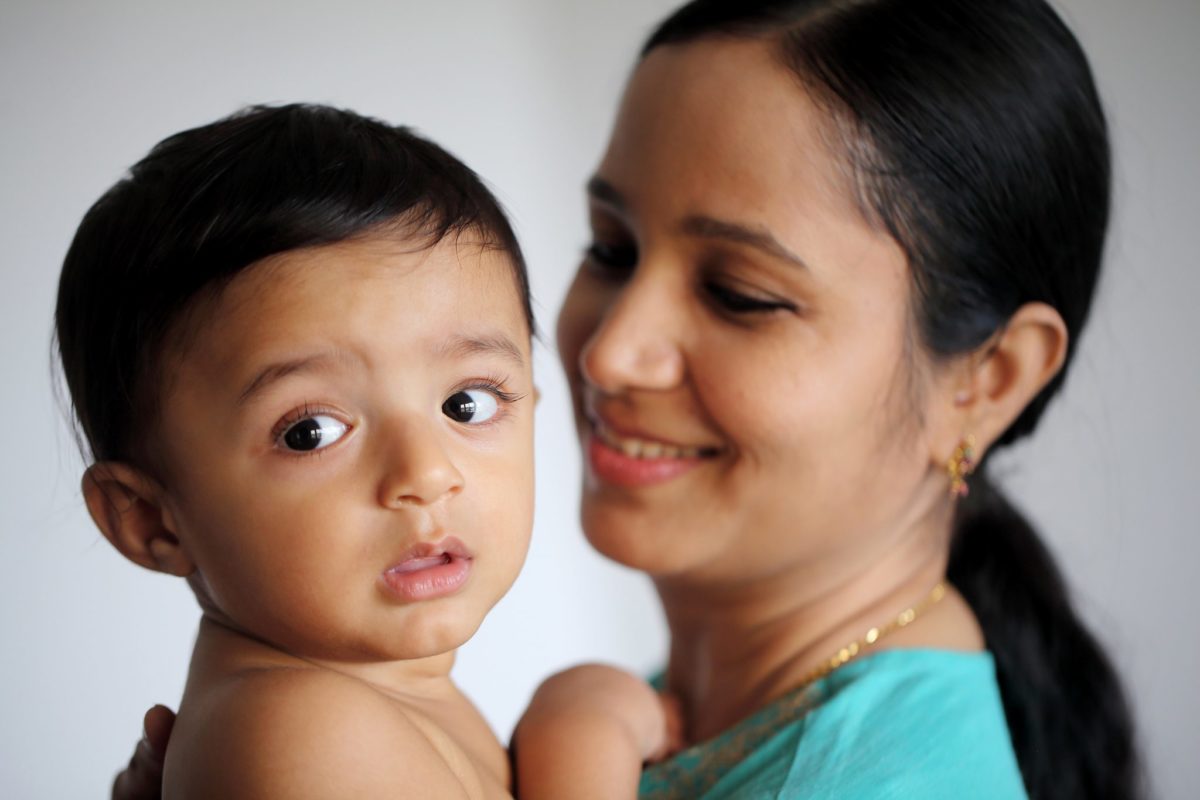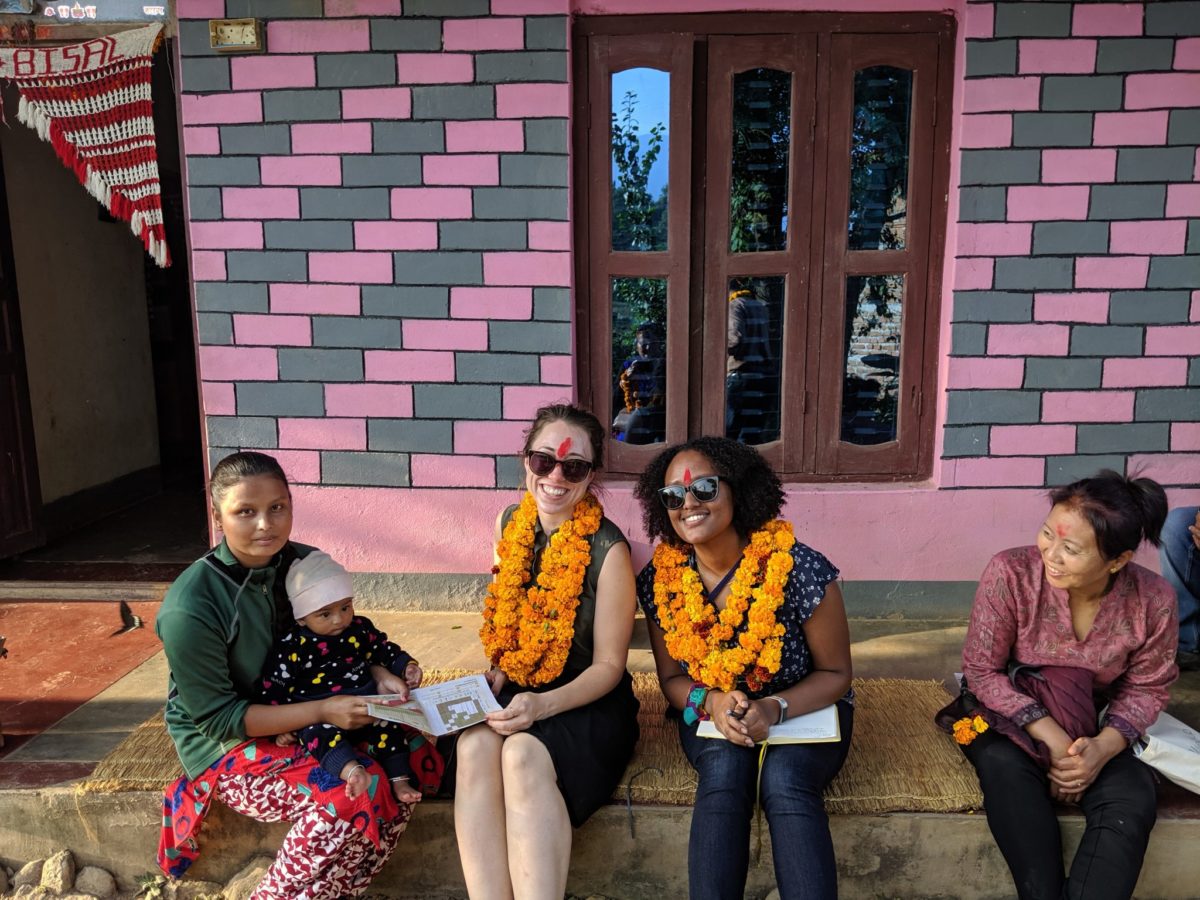A glimpse into what the 1,000 Days Global Policy & Advocacy Team have been leading and prioritizing over the past 3 months:

A sub-set of ICAN face-to-face attendees gathering before the close of the meeting
International Coalition for Advocacy on Nutrition Face-to-Face
The International Coalition for Advocacy on Nutrition (ICAN) came together in October for a 2-day meeting in Washington DC to begin identifying its advocacy strategy ahead of 2020 and the Nutrition for Growth Summit (N4G) in Tokyo.
1,000 Days and 21 ICAN partners across nine donor markets mapped out opportunities, challenges, and potential ways forward to collaborate in resource mobilization and advocacy efforts for global nutrition, ICAN’s key focus. The agenda focused mainly on developing strategy around the N4G opportunity, leading to open and productive conversations around setting advocacy targets and the key political challenges in respective ICAN markets. Organizations confirmed their commitment to support the Government of Japan’s vision and are finalizing advocacy plans within their respective markets ahead of this key moment for nutrition.
SUN Global Gathering – From Kathmandu to Tokyo
Shortly after the ICAN Face-to-Face, 1,000 Days Global Team members Meaza Getachew and Emma Feutl Kent traveled to Kathmandu, Nepal to attend the Scaling Up Nutrition Global Gathering (SUN GG). Over the course of the week in early November, upwards of 1,000 participants from 73 countries gathered under the theme of “Nourishing People and Planet Together” to commit to improving nutrition for all ahead of the 2020 Tokyo N4G . Made up of 61 countries and 4 India states, SUN is a country-led movement collectively accelerating progress towards the World Health Assembly targets and ending malnutrition in all its forms by 2030.
The Gathering organized both large plenaries and workshop-style group discussions aimed to deepen deliberations to identify the actions all stakeholders will need to undertake to accelerate progress in the fight against malnutrition. It was inspiring to interact with SUN Civil Society Network (SUN CSN) organizations, learning about the great strides they have made for nutrition at the national level, and also some of the challenges that CSNs are facing, such as securing sustainable resources for advocacy.

Gerda Verburg, SUN Movement Coordinator, opens a workshop on integrating WASH and nutrition interventions, led by ICAN partner WaterAid International
With the world off track to meet the 2025 World Health Assembly nutrition targets and the SDG 2 target to end malnutrition in all its forms by 2030, the 2020 N4G Summit is a historic opportunity for nutrition. 2020 will mark the five and 10-year (respective) deadlines for the global goals. The SUN GG was well positioned to reinvigorate the nutrition community as we look towards the Summit and call for ambitious commitments that will transform our fight to end malnutrition in all its forms by 2030.
Suaahara II Project Site Visit

A 1,000 day window infographic at Chyangli Health Facilities in Palungtar, Gorkha district
Following the SUN GG, 1,000 Days’ team members conducted a 2-day site visit of USAID-supported Suaahara II program. Suaahara II aims to improve the nutritional status of women and children in 40 under-served rural districts of Nepal. This program is often cited as one of the most successful nutrition programs due to its multi-sectoral and integrated approach to service delivery as it combines WASH, agriculture, and sexual and reproductive health interventions along with nutrition-specific interventions such as exclusive breastfeeding. Suaahara lead partner Helen Keller International (HKI) in Nepal put together the 2-day site-visit for the 1,000 Days team.

Key Life Event celebration with 1,000 day mother Sun Mays Kumal and her 11-day old daughter, Ayushal Ishereen
The team visited two districts, Gorkha and Lamjung, and spent some time learning from the local NGOs which partner with national and international organizations for community program implementation. In Gorkha, the team visited a health facility to observe and interact with 1,000 day nutrition and health service providers. Team members also attended a Key Life Event celebration where they were able to observe how truly integrated the Suaahara interventions are. Key Life Events are celebrations that occur within different stages of the 1,000 day journey, such as when a baby starts eating solid foods, and are leveraged to continue counseling the mother on best practices over the 1,000 days window. 1,000-day mothers are shown support by their community by being showered with gifts of vegetables from neighbors’ farms (agriculture is a key intervention of the Suaahara II project).
In Lamjang, a more remote and isolated district than Gorkha, the Suaahara II interventions complemented the region’s varying cultural and religious practices. The team met with and observed peer facilitators, a 1,000-day mothers group, and Female Community Health Volunteers (FCHVs). One of the key takeaways from these meetings was the community’s own pride in progress in their fight against malnutrition – it was refreshing to observe this integrated approach to nutrition programming.
What we’re looking forward to
As 2019 comes to an end, the community is gearing up for a critical year for nutrition in 2020. The 1,000 Days Global Team is feeling newly inspired from being able to strategize more closely with key partners and seeing first-hand the positive impact good nutrition programming can bring to a community. The team is working closely with ICAN partners to finalize advocacy plans ahead of 2020 and is excited to channel this renewed sense of energy into raising and building momentum towards the 2020 Nutrition for Growth Summit. Stay tuned for updates!








